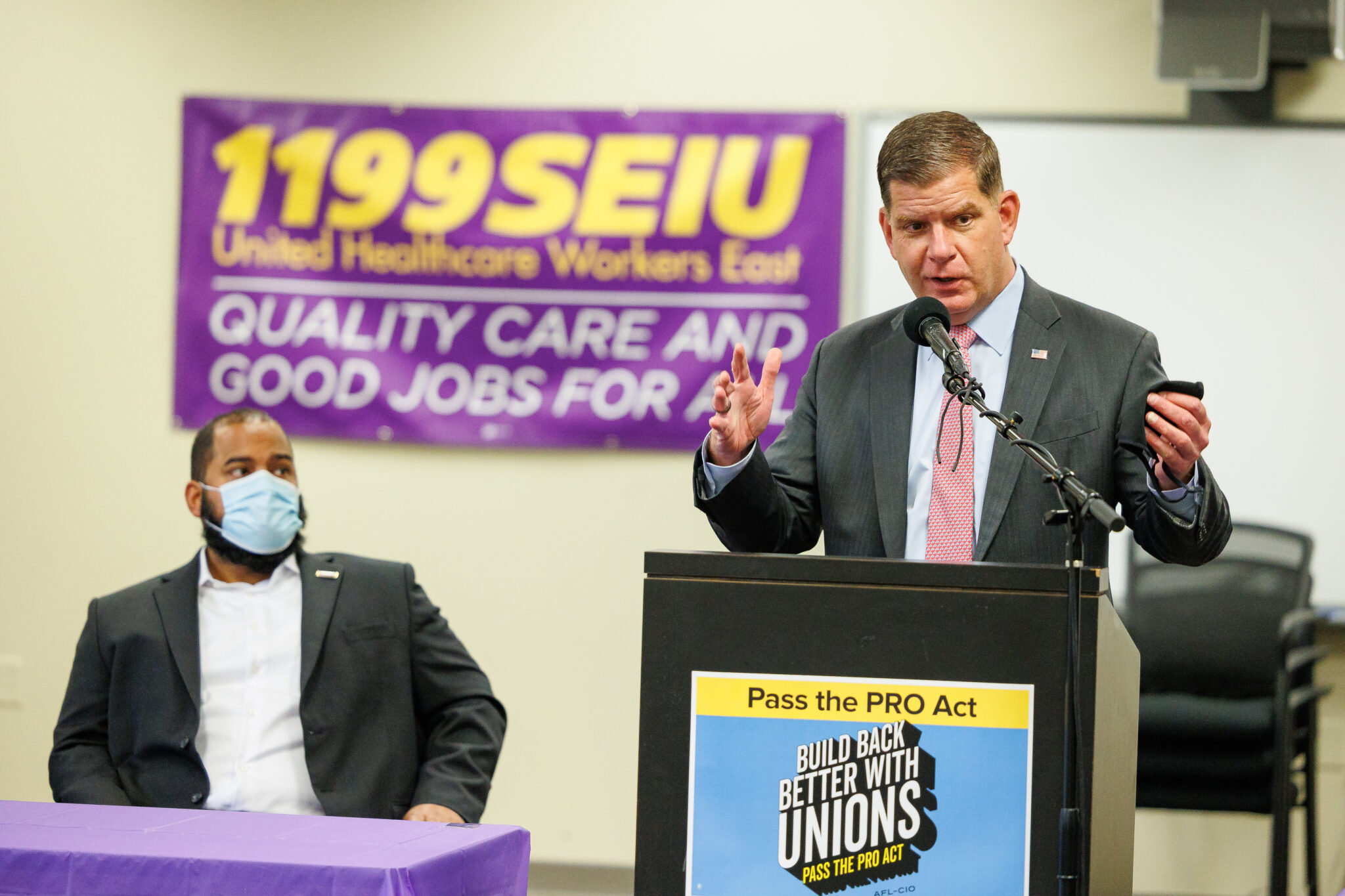
Otto Barenberg is a student at Harvard Law School and the Digital Director of OnLabor.
In today’s news and commentary, 1199SEIU’s presidential campaign heats up, the Supreme Court lowers the bar for employer overtime exceptions, and an end-of-year report shows the EEOC recovered $700 million in 2024.
For the first time in decades, a competitive opposition slate is taking on 1199SEIU’s incumbent President. Threatened Medicaid cuts and mass deportations are animating the insurgent movement at the 400,000-strong healthcare workers union, with many disaffected members arguing George Gresham, the longtime President who has reneged on promises to step down, isn’t equipped to handle the looming political challenges. The Members First Unity Slate comprises hundreds of leaders across the union, including much of Gresham’s own executive team. It’s spearheaded by two 1199SEIU senior executive vice presidents: Yvonne Armstrong, vying for Gresham’s position, and Veronica Turner-Biggs, running for Secretary Treasurer. “We believe that our Union is punching below our weight class,” the slate’s website states. “The absence of a real shared decision-making process has silenced fresh ideas, alternative viewpoints, and new voices. This has led to divisiveness, and limited our power.” The opposition campaign marks a major shift for an organization that has long prioritized internal unity. One anonymous organizer told Politico the internal election could “rip the union in half;” Gresham’s support hasn’t entirely collapsed, and he retains an incumbency advantage. “I believe that an overwhelming number of 1199 members want to stay the course with experienced leadership, given the major accomplishments of my current term as president,” he said in an interview.
Last week, the Supreme Court ruled that the lenient “preponderance of the evidence” standard applies to employers seeking exemptions from the Fair Labor Standards Act’s minimum wage and overtime provisions. The unanimous decision, authored by Justice Kavanaugh, rejected the Fourth Circuit’s heightened “clear and convincing evidence” standard — an outlier among circuit courts. In “level[ing] the playing field,” the decision may embolden employers to classify “gray-area” positions as exempt from the FLSA’s requirements. But some employee advocates don’t expect substantial changes. One worker-side attorney told Bloomberg Law that the decision “will have no impact on workers’ litigation methods in FLSA cases given that employers still have the burden to prove their exemption defense as they always have.”
The EEOC’s annual performance report showed the agency collected $700 million on behalf of 21,000 workplace discrimination victims in 2024, a 5% increase over the year prior. Per EEOC Chair Charlotte Burrows, “the agency demonstrated that the EEOC’s work yields a high return on investment for the American people, recovering substantially more in monetary benefits for victims of discrimination than our $455 million budget.” Of particular note were the Commission’s efforts to tackle cases of systemic discrimination; the EEOC resolved 16 cases on behalf of over 4,000 victims, double 2023’s number.






Daily News & Commentary
Start your day with our roundup of the latest labor developments. See all
December 22
Worker-friendly legislation enacted in New York; UW Professor wins free speech case; Trucking company ordered to pay $23 million to Teamsters.
December 21
Argentine unions march against labor law reform; WNBA players vote to authorize a strike; and the NLRB prepares to clear its backlog.
December 19
Labor law professors file an amici curiae and the NLRB regains quorum.
December 18
New Jersey adopts disparate impact rules; Teamsters oppose railroad merger; court pauses more shutdown layoffs.
December 17
The TSA suspends a labor union representing 47,000 officers for a second time; the Trump administration seeks to recruit over 1,000 artificial intelligence experts to the federal workforce; and the New York Times reports on the tumultuous changes that U.S. labor relations has seen over the past year.
December 16
Second Circuit affirms dismissal of former collegiate athletes’ antitrust suit; UPS will invest $120 million in truck-unloading robots; Sharon Block argues there are reasons for optimism about labor’s future.